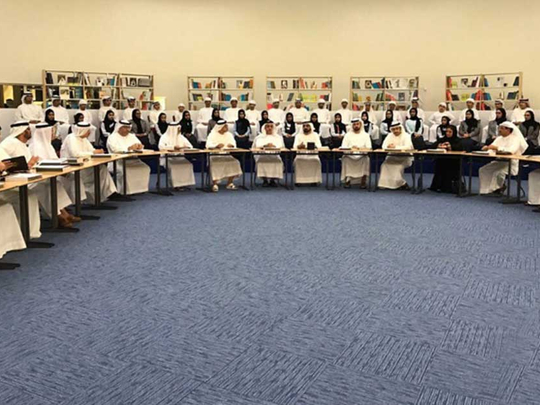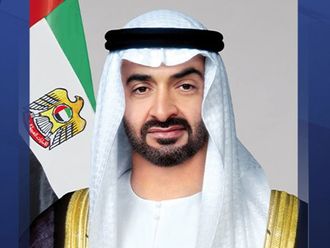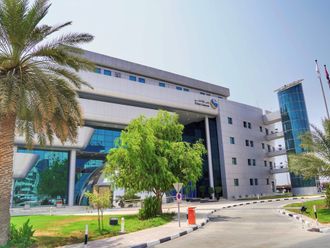
Dubai: The UAE government on Saturday announced setting up a team of hundreds of monitors who will keep track of the performance of government departments.
Making the announcement on Twitter, His Highness Shaikh Mohammad Bin Rashid Al Maktoum, Vice-President and Prime Minister of the UAE and Ruler of Dubai, issued a directive to form government teams to oversee the progress of National Agenda Indicators.
The teams, called the ‘National Agenda Execution Teams’, comprise 550 government officials and will be responsible for fulfilling National Agenda Indicators across all sectors and departments.
In an article posted on www.uaecabinet.ae, Shaikh Mohammad reviewed the performance of the government over the last 10 years.
Titled ‘A decade of achievements and five years of challenge ahead’, the article discusses key achievements of the government in the past decade and the challenges facing the UAE in achieving the targets by 2021.
Discussing a report on the progress he said: “A week ago, I received a detailed report about the current progress in achieving these indicators — it stands at 62 per cent, which means 38 per cent of the indicators have not been effectively achieved. We have only five years remaining, a very short period in the life of a nation. It is not our custom to appease or ingratiate anyone, because courtesy at the expense of the country is not a sign of nationalism.”
He added that the teams will be under the supervision of the Prime Minister’s Office as well as the cabinet ministers who will intensify efforts, mobilise the assets, and redouble the work in the coming period, in order to reach one hundred per cent of the goals of the National Agenda by the year 2021.
“There is no room for procrastination, no time for delay. History is a witness to all of us. We have promised our people to accomplish what is best and we shall fulfil our promise. Government work is an honourable duty, and our government will ceaselessly and tirelessly implement its plans and fulfil its objectives. I will lead this effort and the teams behind it personally. We ask God to guide us to what is best for our country and nation,” he said.
Looking back at ten years of assuming the prime minister’s office, he said: “Over ten years have passed since I assumed the position of prime minister and vice-president of the United Arab Emirates. In those ten years, we have launched a number of plans and strategies, led a number of reforms of our government, developed systems to track performance and improve services, encouraged innovation and the application of technology across all sectors, established awards, formed thousands of working teams, held numerous retreats and meetings and established many new government agencies.”
“We can perhaps now, ten years later, ask ourselves: what is the outcome of all this work and activity? It is important to pause occasionally and review our past work, measure our accomplishments and chart our road ahead. Today, reviewing the past ten years’ work, we stand on a path leading to the next five years to the year 2021, the year which we set as our target year for many objectives and goals. We promised great achievements and aspirations. How far have we come on our road, and how much more do we have to do in the coming five years to fulfil those promises?”
Highlighting a number of indicators of achievements he said: “Despite the global financial crisis and the resulting economic slowdown, despite the upheaval and disorder our region has endured, the United Arab Emirates has shown marked progress in all sectors. Our economy has doubled in the past ten years, from a GDP of Dh663 billion to Dh1,360 billion, an improvement which has provided jobs and underpinned considerable economic and commercial opportunities for the citizens and residents of our country.”
Speaking about the results of diversifying the economy, he said that the UAE’s non-petroleum exports have increased from Dh113 billion in 2006 to Dh603 billion last year.
The economic contribution of the non-petroleum sector has increased from 66 per cent ten years back to 77 per cent now.
“This has provided our economy with considerable protection throughout the recent decline in oil prices and meant we have been one of the few countries worldwide cushioned against the resultant economic slowdown,” he said.
He said that with the development of government systems and services, the public sector’s contribution to GDP has grown from Dh23 billion ten years ago to Dh86 billion currently.
During this period the UAE rose from being the world’s 32nd most competitive economy to the 16th.
“Due to our open economic policies, Foreign Direct Investment has seen a sharp increase from Dh179 billion to Dh410 billion in the past ten years, while our banks’ asset base has increased from Dh859.6 billion to Dh2,478.2 billion,” he said.
Health and education, which he termed among the most important sectors, also point to a significant progress.
“Our expenditure on government hospitals has increased from Dh1.18 billion when I first assumed office to over Dh3.82 billion currently. The number of doctors has increased to over 17,000. In education, we have increased public sector investment by 57 per cent to reach Dh9.75 billion annually. The number of accredited programmes in UAE universities has grown from 206 to 862. The rate of kindergarten enrolment has grown to 93 per cent, making UAE the highest globally. The rate of high school graduation has also reached 93 per cent, which also makes us among the highest globally as well,” he said.
He credited various strategies and initiatives for the success of the government.
“Our work together across all sectors has been tireless. The excellence awards, strategic planning and government service improvement programmes, electronic and smart government initiatives, as well as the complex government performance management systems have not been a waste of time and effort,” said Shaikh Mohammad.
Praising the performance of the public sector he said: “Our public sector has witnessed significant improvement. The concept of excellence and reaching first place has become deeply rooted in our government culture. No wonder, then, our public sector has seen marked improvements according to a number of internationally recognised indicators.”
He said that the UAE leads the Middle East today in over a hundred pivotal development indicators.
“In fact, our nation leads globally in a number of indicators, such as the quality of our public infrastructure, roads, maritime and aviation facilities, public safety and security, the rate of female enrolment in our universities, government efficiency and public satisfaction and trust in the government, among others.”
Highlighting the improvement in road safety he said that in 2006, the rate of road accident fatalities was approximately 16 for 100,000 people, which has now come down to 5.9.
“Detailing the accomplishments of our government teams over the past ten years requires much more room than this short address. My message today is not only about celebrating our achievements, but also evaluating the challenges ahead. A few years ago, we announced the Indicators for our National Agenda. There are 52 objectives in education, health, housing, community, infrastructure, economy, environment, security, justice, and safety, among others, which we aim at achieving by 2021, to be among the best countries globally by that date, which marks the 50th anniversary of our Union.”
He added that these indicators form historic goals for the country in the next five years.
“They constitute the greatest challenges ahead of us; challenges we must overcome in the years to come.”












